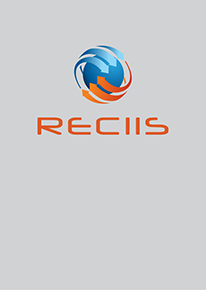Intellectual property and public health: the role of the National Health Surveillance Agency (Agência Nacional de Vigilância Sanitária - ANVISA) in pharmaceutical patenting in Brazil
DOI:
https://doi.org/10.3395/reciis.v6i3.497Keywords:
Intellectual property, Public health, National Health Surveillance AgencyAbstract
This article aims to present results of a study on the examination of pharmaceutical patent applications held by the National Health Surveillance Agency (Anvisa), known as prior informed consent. The implementation of patent examination within the Anvisa - health regulatory agency in the country - is an example of using adapting devices of the TRIPS Agreements of the World Trade Organization (WTO) and instrument of promotion of the right to health. With adherence to the TRIPS Agreement, Brazil was taken to recognize patents for pharmaceutical products and processes, which resulted in the enactment of the Industrial Property law (Law 9,279 of 1996). The temporary monopoly created by patentability interferes with access to medicines and health policies, in particular in the pharmaceutical area. To reduce this interference, Brazil implemented, starting in 1999 (with the creation of prior informed consent), a specific procedure for the examination of pharmaceutical patents, done in two steps: in the Industrial Property National Institute (INPI) and the Coordination of Intellectual Property of Anvisa (Coopi-Anvisa). The practice resulting from this measure is permeated today by numerous conflicts and tensions involving different sectors of Brazilian society. The study of this experience was based on specialized literature, on press material examination, patent applications, laws and decrees relating to medicines and intellectual property and in interviews with those responsible for the operation of the prior informed consent.Downloads
How to Cite
Issue
Section
License
Author’s rights: The author retains unrestricted rights over his work.
Rights to reuse: Reciis adopts the Creative Commons License, CC BY-NC non-commercial attribution according to the Policy on Open Access to Knowledge by Oswaldo Cruz Foundation. With this license, access, download, copy, print, share, reuse, and distribution of articles is allowed, provided that it is for non-commercial use and with source citation, granting proper authorship credits and reference to Reciis. In such cases, no permission is required from the authors or editors.
Rights of authors’s deposit / self-archiving: The authors are encouraged to deposit the published version, along with the link of their article in Reciis, in institutional repositories.












